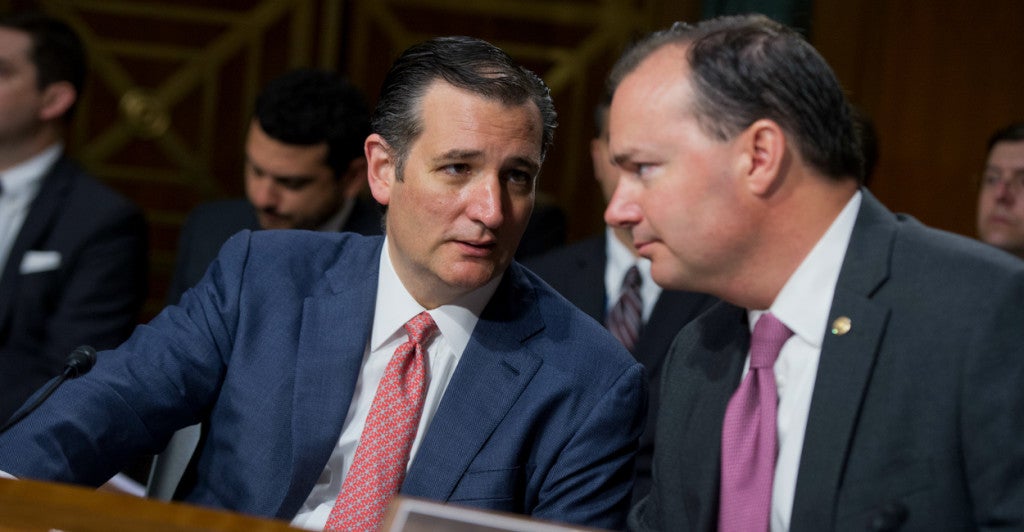The process of approving new drugs and medical devices would be sped up under a bill offered by two conservative senators.
Sens. Ted Cruz , R-Texas, and Mike Lee, R- Utah, introduced legislation Thursday to accelerate how fast the Food and Drug Administration OKs drugs and devices.
Before a drug can reach the U.S. market, it undergoes extensive scrutiny from the agency to win the federal government’s stamp of approval.
While the process is intended to protect consumers from dangerous, even deadly, side effects, the FDA often is criticized for excessive delays that prevent Americans from receiving potentially lifesaving treatments.
“We need to tear down the barriers blocking a new era of medical innovation, and the primary inhibitor is the government itself,” Cruz said in a prepared statement, adding:
Our legislation will unleash lifesaving drugs and devices in the United States, help mitigate critical drug shortages in the U.S., and put downward pressure on the prices of medical devices and drugs as well.
The Cruz-Lee legislation would require the FDA to expedite review of any drug, device, or biological application already approved and sold in “developed and trustworthy” nations.
Reciprocal approval, the senators said, would give those who are suffering from chronic or life-threatening conditions fast-tracked access to drugs and medical devices demonstrated to be safe in specific countries.
In the United States, it takes on average more than a decade for a new drug to reach store shelves, and, according to a Forbes analysis, that process costs companies roughly $350 million.
Cruz said allowing treatments already used in trusted nations would spark a “supply-side medical revolution” that could drive down costs.
The bill would give the FDA 30 days to accept or reject a sponsor’s application to bring “qualified medical products”—those already approved and sold in developed nations—into the U.S. Those nations would include Israel, Australia, Canada, Japan, and members of the European Union.
The legislation, dubbed the Reciprocity Ensures Streamlined Use of Lifesaving Treatments Act, includes a congressional backstop if the FDA rejects an application. It would allow Congress to override an FDA-denied application with a joint resolution, which requires a majority vote and the president’s signature.
Although the FDA needs much broader reform, Lee said, the bill would bring “lifesaving treatments” to “some of the most vulnerable.”
